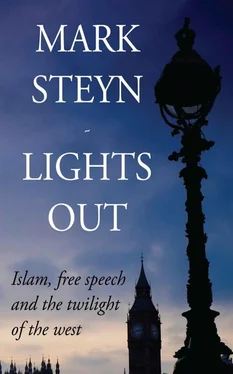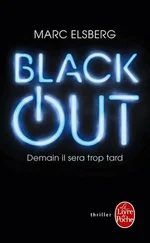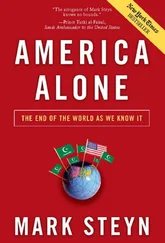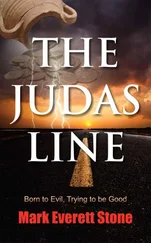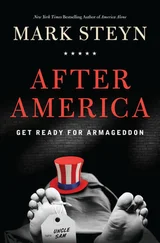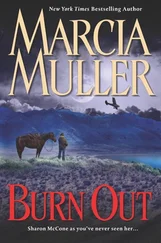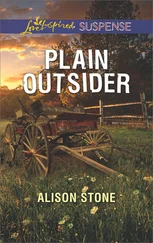Every successful novelist has to convey the sense that his characters’ lives continue when they’re not on the page: An author has to know what grade school his middle-aged businessman went to even if it’s never mentioned in the book. In an invented world, that goes double. And in a “what if?” scenario, where you’re overlaying an unfamiliar pattern on the known map, it goes at least triple. Saying “Imagine the US under a Muslim regime” is the easy bit, creating the “State Security” apparatus and Mullah Oxley’s “Black Robes” – a Saudi-style religious police – is only marginally more difficult. It’s being able to conceive the look of a cul-de-sac in a suburban subdivision – what’s the same, what’s different – that determines whether the proposition works or not. Ferrigno has some obvious touches – the USS Ronald Reagan is now the Osama bin Laden – and some inspired ones – the Super Bowl cheerleaders are all male – but it’s the rich layers of detail that bring the world to life. In one scene, a character’s in the back of a cab and the driver’s listening to the radio: instead of Dr Laura and Dr Phil, it’s a popular advice show called “What Should I Do, Imam?” It doesn’t have any direct bearing on the plot but it reinforces the sense of a fully conceived landscape. There’s no scene set in 2028, but if you asked Ferrigno what Character A was doing that year he’d be able to tell you. If you said “What’s Dublin or Brussels like in this world?” he’d have a rough idea.
The Islamic Republic came into being 25 years earlier in the wake of simultaneous nuclear explosions in New York, Washington and Mecca: “5-19-2015 NEVER FORGET.” A simple Arabic edition of the Koran found undamaged in the dust of DC now has pride of place at the House of Martyrs War Museum. On the other hand, the peckerwoods retrieved from the wreckage the statue of Jefferson, whose scorched marble now graces the Bible Belt capital of Atlanta. But what really happened on that May 19th? Was it really a planet-wide “Zionist Betrayal”? Ferrigno’s story hinges on the dark secret at the heart of the state, which various parties have kept from the people all these years. Car-chase-wise, it’s not dissimilar to Fatherland , Robert Harris’ what-if-Hitler-won-the-war novel, in which a 1960s Third Reich is determined to keep its own conspiracy hidden. And in the sense that both plots involve the Jews, plus ça change – in life as in art.
The local colour is more compelling than either the plot or the characters: there’s a guy – maverick ex-fedayeen – and a girl – plucky, and dangerous with a chopstick – and a sinister old villain with the usual psycho subordinates. Standard fare, but in a curious way the routine American thriller elements lend the freaky landscape a verisimilitude it might not otherwise have had. Writing into the future, a novelist has to figure out what will have been invented in 35 years’ time. Projecting from, say, 1890 to 1925 takes some skill: who’d foresee that telephones and automobiles would be everyday items and that nations would have things called “air forces”? By comparison, from 1970 to 2005, the look of our world has barely altered: the changes are significant but visually marginal – email and computers. Technologically, Ferrigno’s 2040 seems little different from today, but he has a persuasive explanation for it: Nothing works unless it’s foreign-made. American inventiveness has shrivelled and the country’s already mired in the entrepreneurial arthritis that afflicts most of the Muslim world. As one character says:
Marian and I used to discuss the fact that the nation is coasting on the intellectual capital amassed by the previous regime, and we’re running low on reserves. Islam dominated Western intellectual thought for three hundred years, a period when Muslims were most open to the contributions of other faiths. This is the caliphate that should be restored, not some military-political autocracy.
In a Muslim America, there are not just fundamentalists but moderates and “moderns”, and, though the Islamic Republic is a land in decline, it’s not a totalitarian dystopia. Ferrigno is too artful to give us an “Islamophobic” rant. If you’re familiar with his earlier work, you’ll know he’s an efficient writer of lurid Californian crime novels full of porno stars, junkies and a decadent elite: in other words, everyday life in the Golden State. At one level, the Islamic future is a corrective to that present. “You were too young to remember what the country was like before, but let me tell you, it was grim ,” a Catholic cop tells the young Muslim hero. “Man against man, black against white, and God against all – that was the joke, but I sure never got a laugh out of it… Your people are big on the punishment part of crime and punishment, and they don’t take to blasphemy. I like that. The old government actually paid a man to drop a crucifix into a jar of piss and take a picture of it. Don’t give me that look, I’m serious . He got paid money to take the picture, and people lined up around the block to look at it. So I’m not exactly pining for the good old days…”
It’s not an unprecedented arc: Hitler followed Weimar – or, for fans of Cabaret , prison camps followed transvestites in cutaway buttocks. There’s an extremely fine line between “boldly transgressive” and spiritually barren, and it’s foolish of secular western establishments to assume their own populations are immune to the strong-horse pitch. There’s a reason that Islam is the fastest-growing religion in Europe and North America, while, say, the Anglicans are joining Broadway up a chi-chi gay dead end. In Europe, it’s demography that’s ushering in the Islamification of a continent. In America, Ferrigno posits conversion:
Jill Stanton’s proclamation of faith while accepting her second Academy Award would have been enough to interest tens of millions of Americans in the truth of Islam, but she had also chosen that moment in the international spotlight to announce her betrothal to Assan Rachman, power forward and MVP of the world champion Los Angeles Lakers. Celebrity conversions cascaded in the weeks after that Oscars night…
Ayatollah Khomeini’s designation of “the Great Satan” at least acknowledges that America is a seducer – which makes it considerably more sophisticated an insult than that of Canadians who sneer at the US as the Great Moron. What gives Prayers For The Assassin an unsettling compelling power is the premise behind that fictional Oscar speech. As that cop says, “Muslims were the only people with a clear plan and a helping hand.” If it’s a choice between the defeatism and self-loathing of the Piss Christified West and a stern unyielding eternal Allah, maybe it’s Islam that will prove the great seducer.
ISLAMOPHOBIA ALERT
According to Khurrum Awan, Muneeza Skeikh, Naseem Mithoowani, Ali Ahmed and Daniel Simard, the authors of Maclean’s Magazine: A Case Study Of Media-Propagated Islamophobia , the above is “Islamophobic” because of the following “assertions and implications”:
1. American will be an Islamic Republic by the year 2040 – there will be a Muslim / Islamist takeover
2. As a result of the Muslim takeover, there will be a break for prayers during the Super Bowl, the stadium will have a stereotypical Muslim name, and the fans will be forced to watch the game in a Muslim prayer posture
3. Due to the Muslim takeover, the US will have split into different countries and states. Much of the country will be destroyed, there will be a Christian state, there will be a Muslim state in which will be filled with ideas of Jihad, and Jews and other minorities will have to be smuggled into Canada to escape from the Muslims who will be out to eliminate them
Читать дальше
